Recollecting memories of inexpressible friendship...with nature and between two environmentalists!
Total Views |
- Harshad Tulpule
What could be more charming than getting an award in the name of our best friend? It must have been a moment of pleasure for India’s eminent ecologist Dr. Madhav Gadgil when he was declared the awardee of the ‘Salim Ali National Award for Nature Conservation 2019’ by the Bombay Natural History Society (BNHS).
This is an attempt to recollect the memories of a wonderful friendship between Madhav Gadgil and his best friend Salim Ali which was overwhelmed with true love for nature.
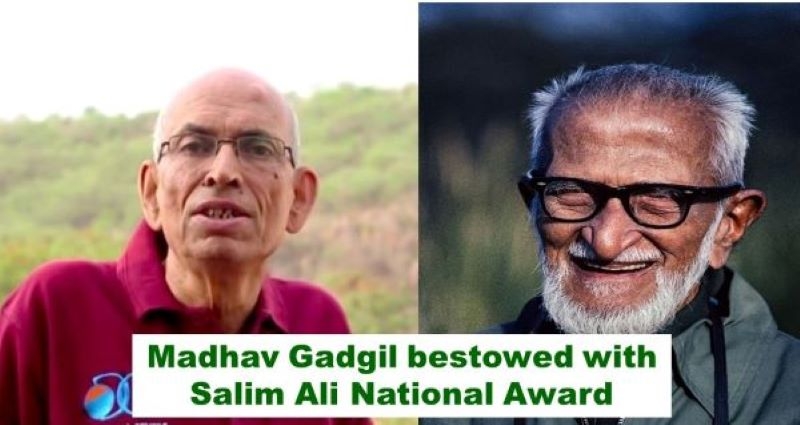
Madhav Gadgil and Salim Ali can be called as the two foundational pillars of ecological studies in India, Madhav Gadgil being the pioneer of community-based conservation approach while Salim Ali the pioneer of bird watching and ornithological studies in India. Salim Ali was born in 1896 while Madhav Gadgil was born in 1942. Thus, Salim Ali is 46 years elder to Gadgil, but both created example that true friendship doesn’t have any age limit! Tremendous love for nature was the main thread that kept them tied intellectually and emotionally.
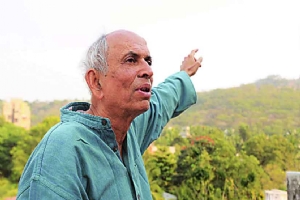 How the first introduction of both to each other happened is pretty interesting story. Dhananjay Ramchandra Gadgil, father of Madhavrao and an eminent economist; knew Salim Ali. Dhananjayrao himself was an avid birdwatcher and a BNHS member. Hence, Madhavrao had started developing interest in birds and nature since his early childhood. Father suggested him to write to Salim Ali and get satisfied all doubts and curiocity. Madhavrao did so and Salim Ali too, replied to him promptly.
How the first introduction of both to each other happened is pretty interesting story. Dhananjay Ramchandra Gadgil, father of Madhavrao and an eminent economist; knew Salim Ali. Dhananjayrao himself was an avid birdwatcher and a BNHS member. Hence, Madhavrao had started developing interest in birds and nature since his early childhood. Father suggested him to write to Salim Ali and get satisfied all doubts and curiocity. Madhavrao did so and Salim Ali too, replied to him promptly. Madhav Gadgil humbly credits his development of interest in ecology to Salim Ali. “He became my mentor and one of the reasons why I took up ecology,” says Dr. Gadgil. Although both were best friends, Dr. Gadgil always considered Salim Ali as his Guru.
“We did research together on the nesting habits of birds and published a scientific paper. Though I was working in a different area, he supported me throughout his life. He had a really good sense of humour, and was wonderful on field,” says Madhav Gadgil while recollecting memories of his career.
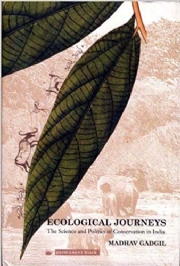 In his classic book ‘Ecological Journeys’, Dr. Madhav Gadgil has written a separate chapter on monumental contribution of Salim Ali to field-based scientific study of nature. “Salim Ali was the only man whose careful observations of birds spanned the whole subcontinent and were made from the detached perspective of a scientist. He popularised bird watching in India, particularly after he published his book - ‘The book of Indian birds’ in 1942. This was India’s first illustrated bird book. He wrote many authoritative handbooks and for researchers like me, those were very comprehensive resources. His total dedication to science and to nature conservation was unique, unmatched by anyone else in the Indian scientific and conservation community.” writes Dr. Gadgil.
In his classic book ‘Ecological Journeys’, Dr. Madhav Gadgil has written a separate chapter on monumental contribution of Salim Ali to field-based scientific study of nature. “Salim Ali was the only man whose careful observations of birds spanned the whole subcontinent and were made from the detached perspective of a scientist. He popularised bird watching in India, particularly after he published his book - ‘The book of Indian birds’ in 1942. This was India’s first illustrated bird book. He wrote many authoritative handbooks and for researchers like me, those were very comprehensive resources. His total dedication to science and to nature conservation was unique, unmatched by anyone else in the Indian scientific and conservation community.” writes Dr. Gadgil. Differences of opinion is a natural thing. There was an incident when these two ecology legends got into a contradiction. Madhav Gadgil respectfully tells how some of his views contradicted those of Ali’s. Madhavrao and Salim Ali had a wonderful time in Bharatpur bird sanctuary watching geese and many other waterfowl. Salim Ali had been persuading Jawaharlal Nehru to establish Bharatpur as one of India’s first nature reserves in the early 1950s. The only thing Salim Ali wanted was to exclude all the buffaloes grazing at Bharatpur in order to make the sanctuary totally secure. But Madhav Gadgil was of the view that as grazing is happening there since centuries, it should not be banned without proper study. Finally, in 1982, grazing was banned by government. Villegers staged big protests. Police fired on the protesters, a few people even died. However, the decision brought about an unintended ecological impact right in the next year. In absence of buffalo grazing, a grass called Paspalum, grew uncontrollably. The whole wetland was choked by the grass. It destroyed the habitat for many ducks and teals.
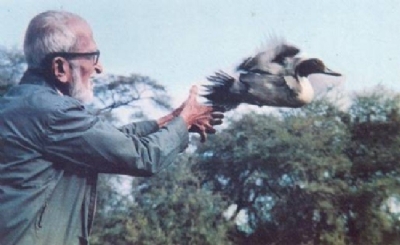 Nevertheless, Madhav Gadgil considers Salim Ali as his Guru and a best friend. In a tribute to Salim Ali, Gadgil wrote in 1996 in Current Science, "Salim Ali will be remembered as the man who taught Indians to appreciate, to study at first hand, to treasure, to work towards conserving the rich living heritage of the country."
Nevertheless, Madhav Gadgil considers Salim Ali as his Guru and a best friend. In a tribute to Salim Ali, Gadgil wrote in 1996 in Current Science, "Salim Ali will be remembered as the man who taught Indians to appreciate, to study at first hand, to treasure, to work towards conserving the rich living heritage of the country."As mentioned earlier, Madhav Gadgil can be indisputably called as the pioneer of community based nature conservation approach. He strongly puts that development by imposition and conservation by imposition, both are wrong. Management of natural resources must be done on village level, by the participation of local people, and, more importantly, modern science and traditional knowledge must go hand in hand. This approach of conservation is very much essential in the context of India where there is a huge population. Hence one can’t think of conserving nature by driving out local people.
Madhav Gadgil came into the light when he was appointed as the head of the Western Ghats Ecology Expert Panel (WGEEP). Based on scientific and social studies, the Committee submitted 550-pages report to the government suggesting how the developmental activities in this region should be done along with conserving natural heritage. However, citing it as ‘anti-development’, the central government totally rejected the report.
Now, when Kerala state undergone massive flood disasters in consecutive years, local governments are rethinking about the report and, somewhere, realization is taking place that it is not advisable to continue with the same development policy which is being adopted everywhere in the so called ‘modern world’. Gadgil never claimed that the WGEEP report must be thoroughly accepted and implemented, but he proposed that the suggestions must be taken into consideration while pushing up development.
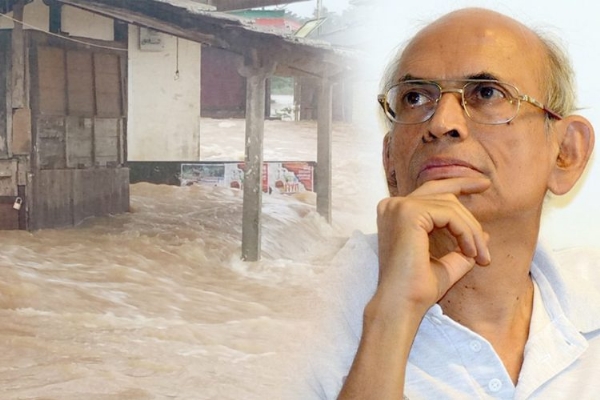
Thus, at this moment, we must congratulate Madhav Gadgil for getting an award in the name of Salim Ali. However, consideration of his conservation approach on policy level will be the true reward to him!
Reference: